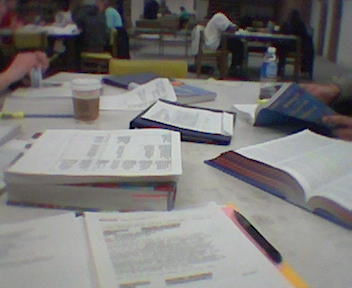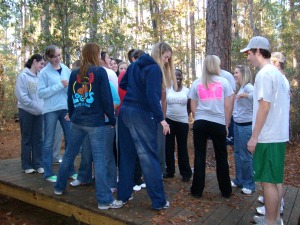 An open letter to students in my Conversations with Professors session, Summer 2009:
An open letter to students in my Conversations with Professors session, Summer 2009:
Welcome to Georgia Southern University!
Our goals today, as set by the Office of the First-Year Experience, were:
- Understand how to approach the first week of classes, such as the importance of:
- The syllabus and knowing how to read one;
- Settling on a course schedule no later than the last day of drop/add (August 20 this Fall semester) and preferably well before then.
- Appreciate some basic tenets of the student-faculty relationship, such as:
- Most faculty care deeply that students learn the material in their classes and will go to great lengths to help them master the material, provided that they demonstrate that they are willing to apply themselves and work hard; and,
- Like students, individual faculty members differ in their rules and expectations. It’s the student’s responsibility to know what each of their professors expects (see that syllabus!).
Here are links to a few of the many things we discussed today in our CwP session:
- Twelve Ways Not to Annoy Your Professor (by Dr. Chris Caplinger)
- One Week Down (includes tips from my FYE 1220 students from last fall)
- 10 Tips for Success on Assignments
- GSU Fall 2009 Semester-at-a-Glance (a handy grid, in Microsoft Word format, for you to record major due dates)
- Syllabus Scavenger Hunt
- How to Study for Final Exams (from both a professor and a student perspective)
- How to Fail a Class (Without Really Trying) (my sarcastic take on some students’ approaches to college & learning)
- Prof. Nixon’s End of Semester Rant (another sarcastic take)
- 10 Ways NOT to Prepare for College Advising (a third sarcastic take)
- Prof. Nixon’s Teaching & Learning Philosophy (as your professors if they’ll share theirs with you; it’ll give a great insight into your professor’s approach)
- Financial Aid Podcast (a weekly podcast filled with tips on college finances)
- Di Passaggio theatrical trailer (film directed by James Kicklighter)
Questions as you prepare for Fall 2009? I’m happy to help.

Filed under: tips | Leave a comment »








